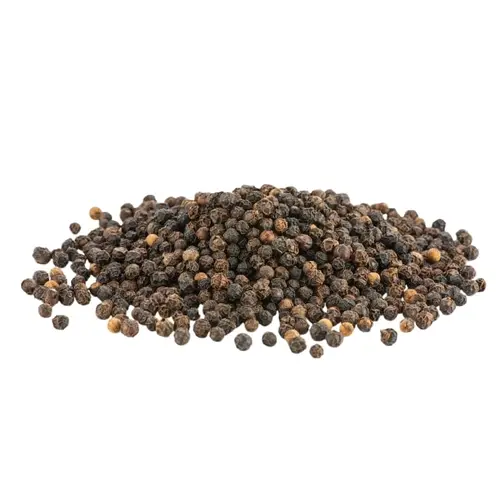Description
Beyond its flavor-enhancing qualities, black pepper offers numerous health benefits. It contains piperine, a powerful alkaloid known for its antioxidant, anti-inflammatory, and digestion-boosting properties. Black pepper also enhances the absorption of nutrients, making it an important spice not just for taste, but also for improving overall wellness. It's a low-calorie, nutrient-rich addition to any healthy diet.


